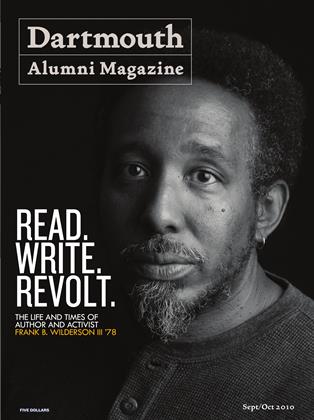FILM, WOMEN'S AND GENDER STUDIES
FAVORITE BOOK TO TEACH:
Anti-Semite and Jew, by Jean-Paul Sartre
MUST-READ BOOK IN YOUR FIELD:
The Apparitional Lesbian: Female Homosexuality and Modern Culture, by Terry Castle
FAVORITE PLEASURE READ:
Any collection of film criticism by Pauline Kael
CURRENTLY READING:
When Romeo Was a Woman: Charlotte Cushman and her Circle of Female Spectators, by Lisa Merrill
Although written in 1948, Sartre's analysis of anti-Semitism is an amazing work that really gets to the heart of how we create outside social groups and demonize them. Sartre gets into the psychology and the sexual fantasies of others and even today the book is highly instructive. I use it in "Jews and Hollywood: The Making of American Dreams" to discuss what Jewish immigrants faced when they came to this country. It is also useful in "Introduction to Lesbian, Gay, Bisexual and Transgender Studies."
Kael's film criticism, which she began writing in the early 1960s and continued until her death a few years ago, is some of the best writing in American journalism and art criticism. She is funny, insightful, combative, highly knowledgeable and always entertaining. I go back to these reviews again and again, not just for the pleasure of reading them but to learn or remember how to write clearly and concisely and to make a point with vigor and wit.
Along with Edwin Booth, Cushman was perhaps
the most famous Shakespearean actor of the 19th century. She was also, for the time, completely open about her romantic affairs with women. Her relationship with Matilda Hayes was so renowned that no less an expert on romantic love than Elizabeth Barrett Browning called their relationship a "female marriage" and found it more perfect than that between a man and a woman. The title of the book refers to the fact that one of her most famous roles was Romeo, which she played against her sister's Juliet.
 View Full Issue
View Full Issue
More From This Issue
-
 Feature
Feature“This isn’t My Mother’s Dartmouth”
September | October 2010 By Jennifer Wulff ’96 -
 Cover Story
Cover StoryThe Italicized Life of Frank B. Wilderson III ’78
September | October 2010 By JAMES ZUG ’91 -
 Feature
FeatureDONALD PEASE
September | October 2010 -
 Feature
FeatureSIENNA CRAIG
September | October 2010 -
 Feature
FeatureCHARLES WHEELAN '88
September | October 2010 -
 Feature
FeatureJENNIFER LIND
September | October 2010
Features
-
 Feature
FeaturePiano Man
Sept/Oct 2004 By BONNIE BARBER -
 Feature
FeatureWhat Is Success?
MARCH 1983 By E. R. (Skip) Sturman '70 -
 Feature
FeatureDartmouth and Saint Francis
November 1959 By GORDON M. DAY -
 Feature
FeatureAmbassadors Without Portfolio
APRIL 1965 By PAUL C. PRINGLE '65 -
 Feature
FeatureThe New New York
Jan/Feb 2002 By ROBERT SULLIVAN '75 -
 Feature
FeatureThe Actor Who Knew Too Much
July/August 2012 By TY BURR ’80

